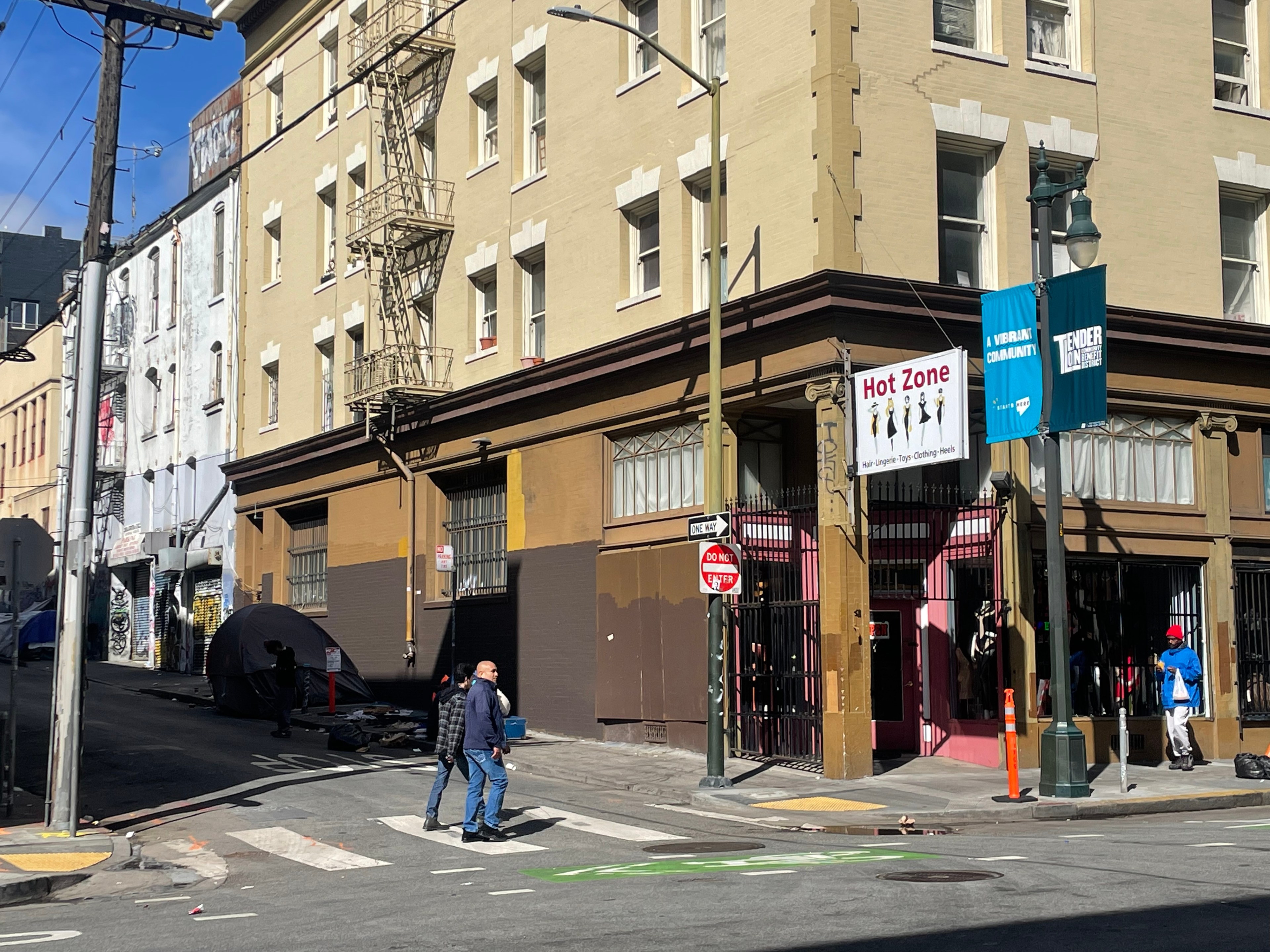A small business owner in San Francisco’s Tenderloin neighborhood is furious with the fire department for sending him a random $560 medical bill after he reported a homeless encampment fire outside his store.
Mustafa Damrawi, the owner of Hot Zone clothing and sex shop on Polk and Willow streets, reported a fire that was started a few feet in front of his business on Dec. 23 because he worried it might spread to his building.
Firefighters responded and put out the fire. But Damrawi was dumbfounded when he received a bill for the incident over two months later.
“This is your third notice,” the invoice, embossed with the San Francisco Fire Department’s seal and dated March 7, read. “Please respond immediately to avoid further collection activity.”
Damrawi’s business is located near a persistent homeless encampment on Willow Street, which is a hotspot for drug activity in the troubled Tenderloin neighborhood. Fires started by occupants of homeless encampments have doubled citywide in the last five years, according to fire department data.
“Am I supposed to just sit around watching the fire?” Damrawi said. “This building is wood. It’s going to burn.”
Damrawi said his store, which sells women’s clothing, lingerie, wigs and sex toys, has been frequently targeted by vandals who’ve robbed him, assaulted him and thrown acid on his front window. He did not supply police case numbers to corroborate the incidents.
However, since he received the medical transportation bill earlier this month, Damrawi said he’s refused to report illegal behavior to authorities—afraid he may incur more fines.
“It’s like I’m living in prison,” Damrawi said.
In a statement, the San Francisco Fire Department acknowledged it incorrectly billed Damrawi’s business. Department spokesperson Justin Schorr said an unnamed person who was transported for medical treatment from the incident falsely marked Damrawi’s business as their home.
“We encourage anyone who believes they are witnessing a fire or medical emergency to call 911 immediately,” Schorr said in an email. “This issue should be resolved as soon as the billing company is notified of our direction.”
Schorr said this likely isn’t an isolated incident, as homeless victims sometimes report random addresses as their own. The department’s software is also known to log the location of an incident as a person’s home, he said.
Damrawi said he’s grateful the fee will be waived, but conditions around his business remain difficult.
Willow Street, the alleyway bordering his business, is the area most frequently visited by city workers responding to complaints about homelessness, according to city officials contacted Tuesday.
Damrawi said he purchased his business for $150,000 over two years ago but would be happy if he could sell it for $30,000 now. Last week, the store made just $54, he said, explaining that his investment in the store was a mistake.
“The girls don’t like to come here because it’s scary,” Damrawi said. “This is San Francisco, the most beautiful city in the world; how did it become like this?”
